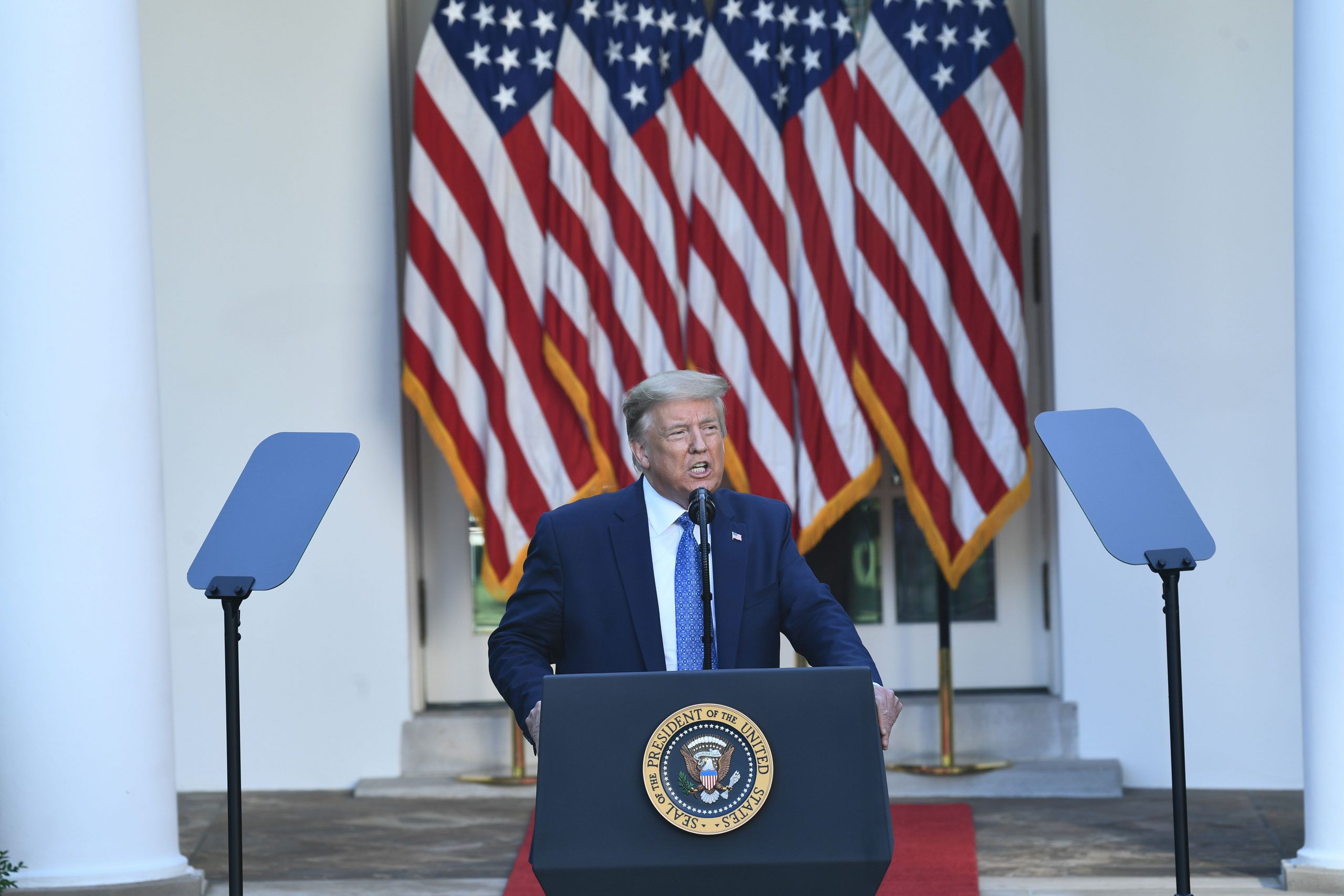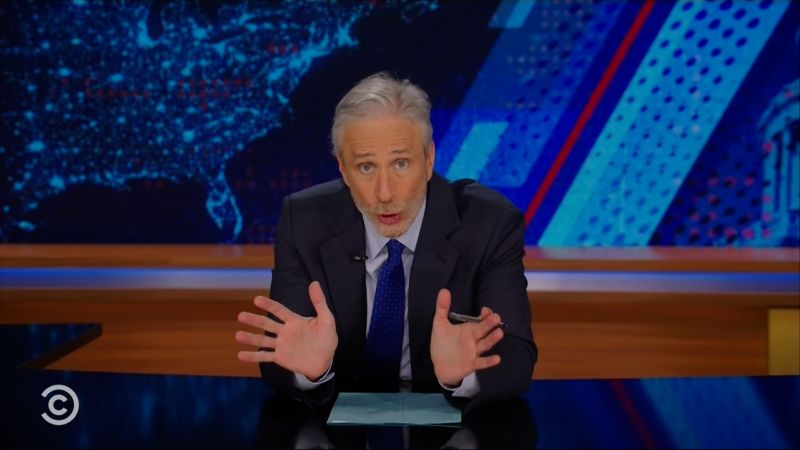U.S. President Donald Trump delivers remarks in front of the media in the Rose Garden of the White House in Washington, D.C., on June 1. (Brendan Smialowski/Getty Images)
Donald Trump’s relentless campaign against the American media prompts a reflection on the relations that the media has had with earlier presidents. It is a rather mixed story of support and outright criticism. What is clear is that the media has often had a profound effect on America’s political choices over the years.
The Vietnam War was the first one covered in depth and in detail by the American media. In the early years of the war, the media was by and large supportive of the American military effort. But things began to change in 1968 when the Viet Cong and the North Vietnamese mounted what came to be known as the Tet Offensive, a massive assault on hundreds of cities and villages. While the offensive was eventually beaten back, it gave the lie to the optimistic reports that had been emanating from the American military command in Saigon.
American television viewers were treated to scenes of Viet Cong attacks against fortified American positions, including the U.S. embassy. And shortly after the offensive, the highly respected anchor of the CBS evening news, Walter Cronkite, went on a fact-finding visit to South Vietnam. He returned with a sobering message: “For now it seems more certain than ever that the bloody experience of Vietnam is to end in stalemate.” He went on to advocate a negotiated way out of the quagmire. This judgment had a devastating effect on President Lyndon Johnson, who commented, “If I’ve lost Walter, I’ve lost middle America.” But Cronkite was not alone in concluding that the American military enterprise was doomed. Even such staunchly conservative publications as the Wall Street Journal and Time magazine echoed his sentiments. This turning away of the media was in many ways just as important as the street protests by young Americans in convincing Johnson not to run again for the presidency.
Johnson’s successor, Richard Nixon, had long had a fairly stormy relationship with the press. After one of his electoral defeats, he ended a news conference with the comment that, “You won’t have Richard Nixon to kick around anymore.” His vice-president, Spiro Agnew, no doubt reflecting his boss’s sentiments, once said that journalists were “the nattering nabobs of negativism.” Nixon’s years in the White House saw a long trail of campaigns against the media, culminating in the creation of the so-called “planting unit,” one of whose functions was to mount surveillance operations against journalists. But, of course, it was the media that had the ultimate laugh at Nixon’s expense. The investigative reporting of Bob Woodward and Carl Bernstein of the Washington Post revealed the full extent of the Watergate scandal and of Nixon’s personal involvement in it. It was these revelations that forced Congress to undertake an investigation of the president and to produce reports that would have led to his impeachment. In order to avoid that fate, Nixon resigned in ignominy. The press had done the country a great service.
The arrival of Jimmy Carter in the White House was widely greeted as an opportunity for the United States to put the Watergate scandal behind it. He enjoyed good press during his first three years in office. Two significant foreign policy achievements contributed to this. The first was the conclusion of the Panama Canal treaty, which put an end to decades of disputes over ownership of the canal. Even more important was Carter’s role in persuading the leaders of Egypt and Israel to conclude a peace treaty. This still stands out to this day as the supreme success in all of the diplomatic efforts that have been made to resolve the Arab-Israeli conflict. But the press became somewhat more critical of Carter in 1979. When Iranian students, with the encouragement of the new revolutionary government, seized the American embassy in Tehran and held some 50 diplomats hostage, the response of the American government was somewhat hesitant. When it finally did decide to act, the operation mounted to rescue the hostages turned into a very well-publicized fiasco. When later that year the Soviet Union invaded Afghanistan, the Carter administration slapped it with a series of rather tentative economic sanctions and a boycott of the 1980 Moscow Olympics. These measures had no discernible effect on the Soviet Union, which remained in occupation of Afghanistan for nine more years. As a result of both of these episodes, the American media began to portray Carter as a weak and ineffective leader. That portrayal no doubt contributed greatly to his defeat at the hands of Ronald Reagan.
Reagan came to office in 1980 and enjoyed a prolonged honeymoon with the media. He was portrayed as a strong and charming leader. His decision to provide financial and military support to the mujahedeen fighting the Soviets in Afghanistan met with general approval. The media was prepared to overlook the early signs of the effects of old age on his performance, e.g. when he repeatedly fell asleep at a G7 summit meeting in Venice in 1982. The media was generally supportive of his tough stand on relations with the Soviet Union, as well as on his subsequent opening of diplomatic channels of communication with Soviet leader Mikhail Gorbachev. The only real bad patch the Reagan administration experienced in relations with the media was precipitated by what came to be known as the Iran-Contra affair. In violation of congressional edicts, senior members of Reagan’s national security staff engineered a program to sell weapons to “moderate forces” in Iran and to use the proceeds to support the Contra movement then fighting the Sandinistas in Nicaragua. The illegality of this program drew sharp criticism from the media, but so, too, did the president’s apparent inability to control what went on in the White House. Nevertheless, Reagan left office with a very high approval rating, and nostalgia for the Reagan era continues to be a dominant feature of Republican propaganda.
Reagan’s successor, President George H.W. Bush, had none of his predecessor’s charisma but enjoyed good press as he stickhandled the complex politics of the end of the Cold War and suspended robustly to the Iraqi invasion of Kuwait in 1990. But it was the state of the American economy that was to be his downfall as he was defeated with relative ease by Bill Clinton in his bid for re-election. Clinton brought to the White House a superabundance of charm and youthful energy and managed to launch the United States on a period of unprecedented economic expansion. And yet his two terms in office were constantly overshadowed by media reports of sexual impropriety. Culminating in the Monica Lewinsky affair, in which a young female intern claimed she and Clinton had sex in the Oval Office, Clinton’s reputation was destroyed in an impeachment trial during the course of which he shamelessly prevaricated. The media’s prolonged obsession with the Lewinsky affair certainly undermined his performance as president. (I can well remember a televised news conference that Clinton held with Palestinian leader Yasser Arafat. All of the questions from the media dealt with the Lewinsky imbroglio, as Yasser Arafat sat there with a bemused look on his face.) In retirement, Clinton appears to have salvaged his reputation and is now one of the leading lights of the Democratic party.
Not long after he came into office, President George W. Bush was confronted with the al-Qaida attacks on New York and Washington. His response to these events, a combination of resolve and compassion, was widely hailed by the media. He also initially enjoyed media support for his invasion of Iraq in 2003. That support rapidly dissolved, however, when it became evident that the two main reasons given for the invasion — Iraq’s stockpiles of weapons of mass destruction and links between Saddam Hussein and al-Qaida — were totally bogus. Many media outlets, including the New York Times, came out very publicly in admitting they had been wrong to support the invasion. Thereafter, the media produced a long series of articles highly critical of the way operations were conducted in Iraq. The level of criticism only mounted following the president’s rather muddled response to the flooding caused by hurricane Katrina. Throughout, the president seemed to accept the criticism with equanimity and never chose to go to war against the press, unlike Nixon and Trump.
President Barack Obama had a fairly positive relationship with the media throughout his eight years in office. Even when his policies came under attack, as in the case of his response to the civil war in Syria, he chose to answer his critics with reasoned arguments rather than with venom. The contrast with his successor, Donald Trump, could not have been more stark. Throughout his election campaign and during his three and a half years in office, Trump has been relentless in his attacks on the media, declaring them to be purveyors of “fake news” and enemies of the American people. His attacks against individual news organizations and individual journalists have no precedent in American history. And the media has not been kind to Trump. Various news organizations have launched squads of investigative reporters to look into his personal life and past business dealings. Their revelations have served to further discredit a president who has done so much to discredit himself.
There is always bound to be a certain amount of antagonism in relations between presidents and the media. The former, rightly or wrongly, believe that what they are doing is best for the country. The latter see it as their responsibility to hold leaders accountable for their actions, or to use that old cliche, “to tell truth to power.” In a properly functioning democracy, both have essential roles to play. The extent to which they can carry out those roles in a civilized and mature way is indeed a true test of the vitality of a democracy. Pace Mr. Trump.
Louis A. Delvoie is a retired Canadian diplomat who served abroad as an ambassador and high commissioner.
























